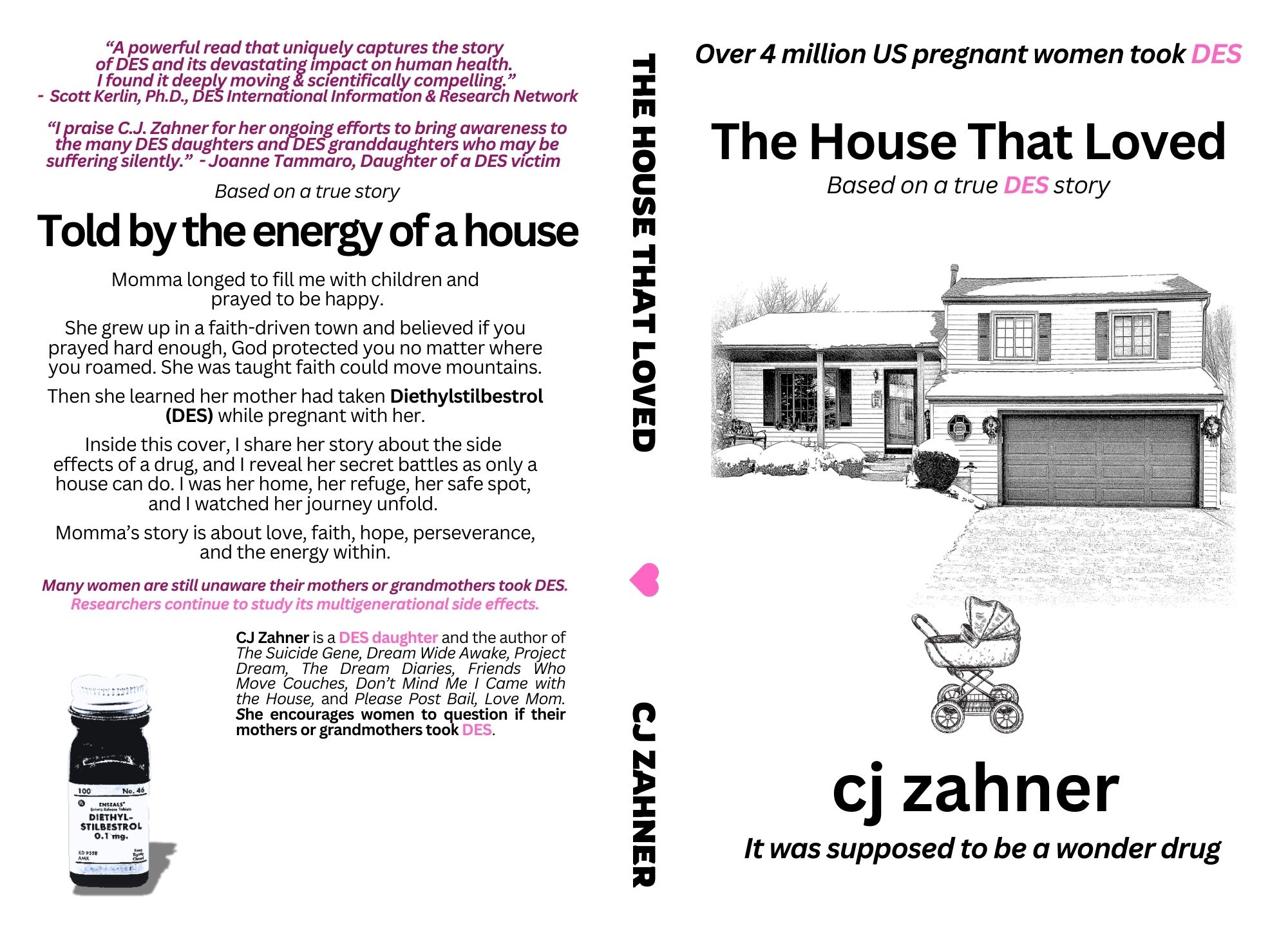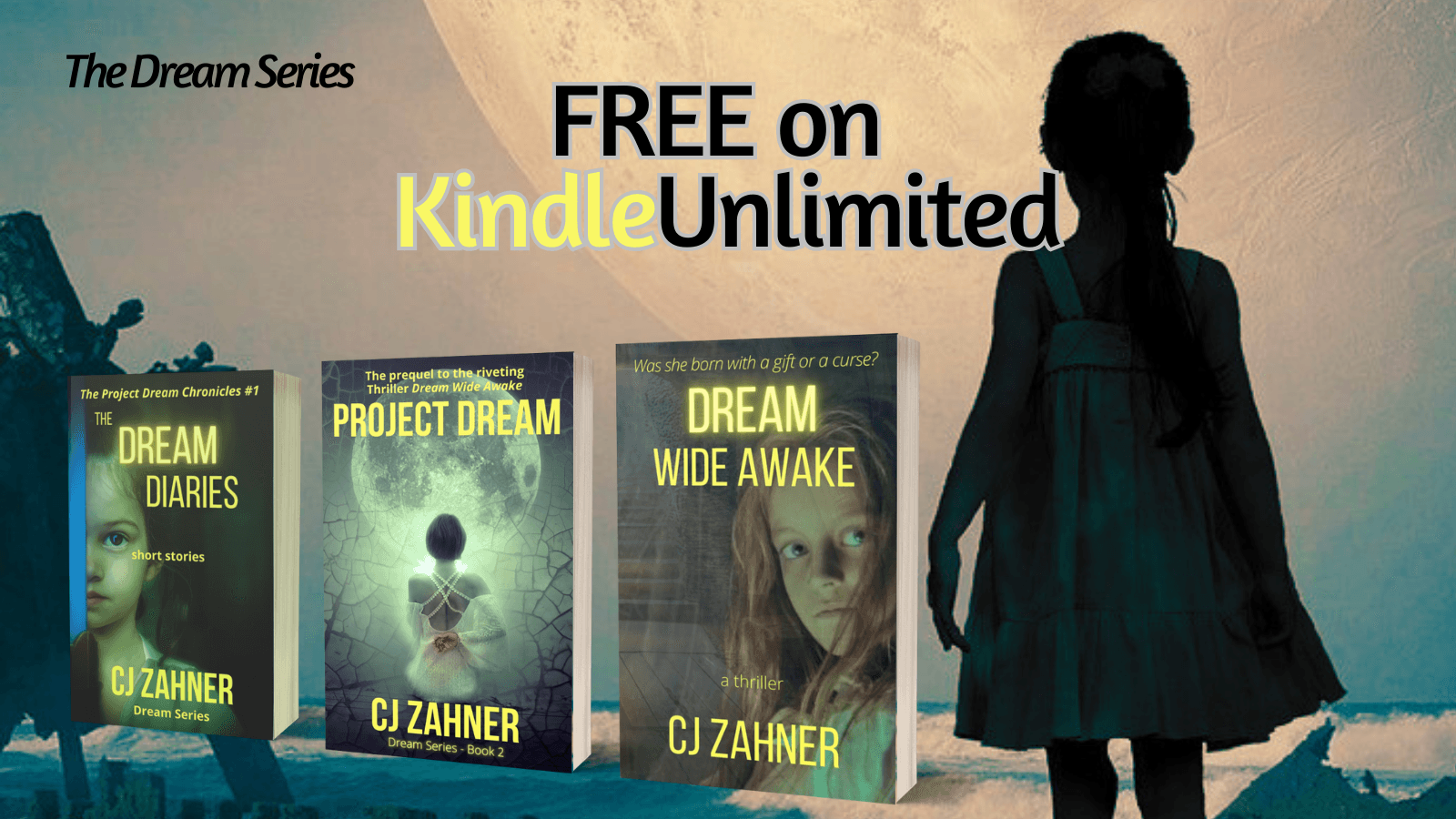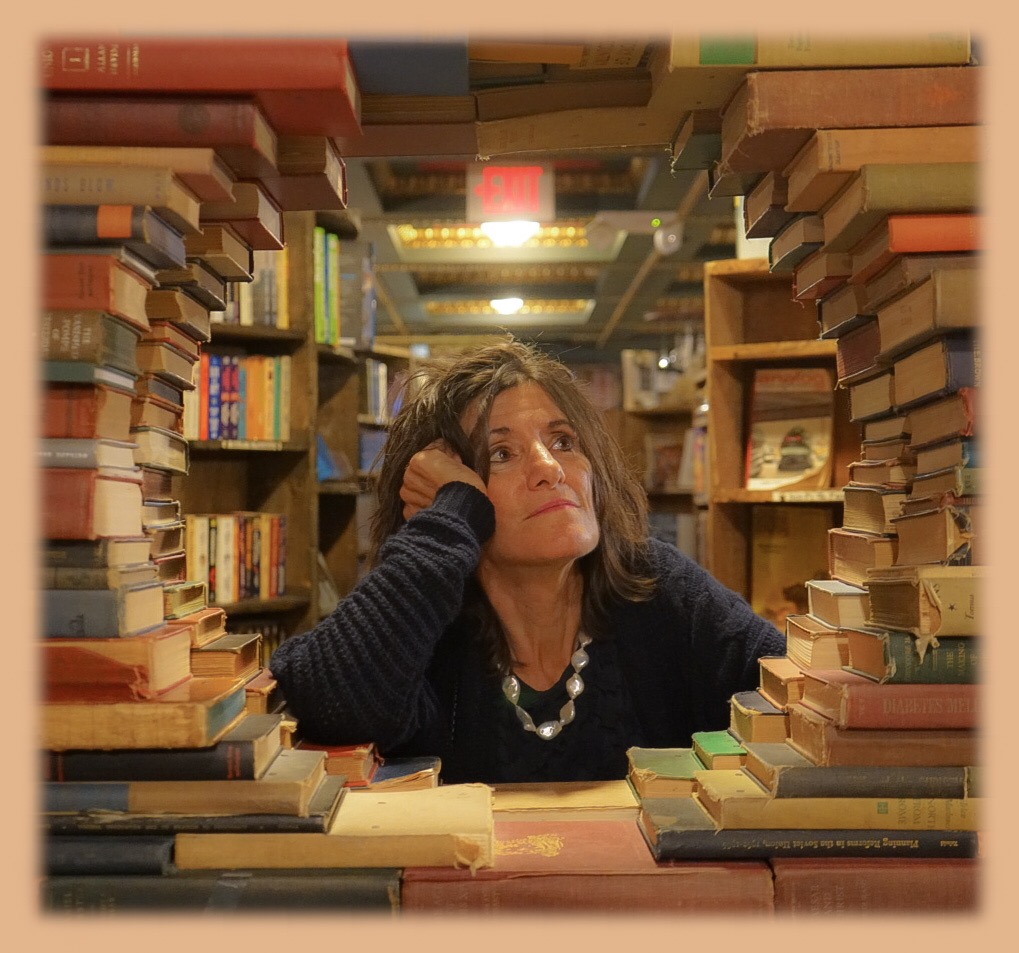We’re excited to introduce you to the always interesting and insightful CJ Zahner. We hope you’ll enjoy our conversation with CJ below.
CJ, thanks for taking the time to share your stories with us today Let’s talk legacy – what sort of legacy do you hope to build?
The greatest and most valued legacies to pass on can be personal experiences and knowledge rather than physical treasures. Learned lessons handed down educate and inspire others. Who doesn’t want to know what their ancestors have been through, and what better way to find out about the past than reading a book?
In fiction, writers have the ability to leave readers with a feel for an era. By creating a fictional character of the times, an author can show the qualities and peculiarities of a generation. The personalities of the baby boomers, Gen X, millennials, Gen Z can be depicted in fiction every bit as much, maybe more, than in nonfiction because of the creative freedom the author has.
In nonfiction, an author can leave true accounts of lives and times, peace and war, the struggles and challenges of decades. In my memoir, 𝑇ℎ𝑒 𝐻𝑜𝑢𝑠𝑒 𝑇ℎ𝑎𝑡 𝐿𝑜𝑣𝑒𝑑, I tell the story of a drug prescribed to millions of pregnant women. My mother was one of those women. My descendants will have an actual account of the effects this drug had on our family, and others will learn about the drug’s devastating, long-lasting, and generational effects that live on.
(𝐷𝑖𝑒𝑡ℎ𝑦𝑙𝑠𝑡𝑖𝑙𝑏𝑒𝑠𝑡𝑟𝑜𝑙 𝑜𝑟 𝐷𝐸𝑆 𝑤𝑎𝑠 𝑝𝑟𝑒𝑠𝑐𝑟𝑖𝑏𝑒𝑑 𝑡𝑜 𝑜𝑣𝑒𝑟 𝑓𝑜𝑢𝑟 𝑚𝑖𝑙𝑙𝑖𝑜𝑛 𝑝𝑟𝑒𝑔𝑛𝑎𝑛𝑡 𝑤𝑜𝑚𝑒𝑛 𝑖𝑛 𝑡ℎ𝑒 𝑈𝑛𝑖𝑡𝑒𝑑 𝑆𝑡𝑎𝑡𝑒𝑠 𝑏𝑒𝑡𝑤𝑒𝑒𝑛 1940 𝑎𝑛𝑑 1971. 𝐼𝑡 𝑐𝑎𝑢𝑠𝑒𝑑 𝑐𝑎𝑛𝑐𝑒𝑟 𝑖𝑛 𝑡ℎ𝑒 𝑚𝑜𝑡ℎ𝑒𝑟𝑠 𝑎𝑛𝑑 𝑐𝑎𝑛𝑐𝑒𝑟, 𝑖𝑛𝑓𝑒𝑟𝑡𝑖𝑙𝑖𝑡𝑦, 𝑒𝑐𝑡𝑜𝑝𝑖𝑐 𝑝𝑟𝑒𝑔𝑛𝑎𝑛𝑐𝑖𝑒𝑠, 𝑝𝑟𝑒𝑚𝑎𝑡𝑢𝑟𝑒 𝑏𝑖𝑟𝑡ℎ𝑠, 𝑠𝑡𝑖𝑙𝑙𝑏𝑖𝑟𝑡ℎ𝑠, 𝑎𝑛𝑑 𝑠𝑒𝑣𝑒𝑟𝑒 𝑛𝑒𝑢𝑟𝑜𝑙𝑜𝑔𝑖𝑐𝑎𝑙 𝑑𝑖𝑠𝑜𝑟𝑑𝑒𝑟𝑠 𝑡𝑜 𝑡ℎ𝑒 𝑏𝑎𝑏𝑖𝑒𝑠 𝑖𝑛 𝑢𝑡𝑒𝑟𝑜. 𝑆𝑡𝑢𝑑𝑖𝑒𝑠 𝑐𝑜𝑛𝑡𝑖𝑛𝑢𝑒 𝑜𝑛 𝑡ℎ𝑒 𝑡ℎ𝑖𝑟𝑑 𝑎𝑛𝑑 𝑓𝑜𝑢𝑟𝑡ℎ 𝑔𝑒𝑛𝑒𝑟𝑎𝑡𝑖𝑜𝑛 𝑣𝑖𝑐𝑡𝑖𝑚𝑠.)
My books will be my legacy and I hope people will say I showed compassion and understanding through my writing.

Great, appreciate you sharing that with us. Before we ask you to share more of your insights, can you take a moment to introduce yourself and how you got to where you are today to our readers.
I was alone often as a child and found comfort in reading books and writing stories. While in high school, I worked closely with an English teacher who selected me as editor of the school newspaper, further inspiring my love of reading and writing.
In college, I originally majored in English. But I took a summer job as a sales clerk in a department store and worked alongside four women with English degrees. Afraid I would not secure a better job after college, I switched my major to business but always found my way back to writing. I wrote business procedures and grants, and eventually composed freelance articles for local newspapers and magazines.
In 2015, after my only sibling developed early-onset dementia, I decided to leave the business world and chase my dream of becoming an author. Now I write books, and what sets me apart from other authors is that I write multiple genres: thrillers, chick lit, women’s fiction, and now a memoir.
Writing a memoir is a vulnerable endeavor, heartfelt and difficult. Yet, it is this novel, the story of my life, of which I am the most proud.
Can you share a story from your journey that illustrates your resilience?
Authorship is daunting, and writing can be lonely. My biggest challenge was jumping from the business world into a writing career where I was completely on my own. Many times, I had no one to ask questions of.
Over time, I built relationships with other authors and joined critique groups. I worked sixty to eighty hours a week writing, editing, learning the business, and marketing.
Few authors become instantly successful. I was told early on that it takes an author ten novels to earn a living and that might be true. I published my first book with a wonderful small-press company, but declined to publish my second novel with them and became an indie author.
Working as an indie author is more profitable but more challenging. There are days I rise at 3 am to begin working, but that seems a small price to pay for a job you love.

What do you think is the goal or mission that drives your creative journey?
My fiction goal has always been to inspire compassion in readers and provide a respite from life.
With my memoir, my goal is to inform women about the drug Diethylstilbestrol (DES) and its generational side effects.
Millions of women have suffered physical side effects from DES. In 2018, however, a French study reported DES also caused higher incidences of behavioral disorders, schizophrenia, eating disorders, depression, bipolar disorders, anxiety, and suicide attempts. (𝑂𝑓 𝑡ℎ𝑒 740 𝐷𝐸𝑆 𝑠𝑢𝑏𝑗𝑒𝑐𝑡𝑠 𝑖𝑛 𝑡ℎ𝑎𝑡 𝐹𝑟𝑒𝑛𝑐ℎ 𝑠𝑡𝑢𝑑𝑦, 85% ℎ𝑎𝑑 𝑎𝑡𝑡𝑒𝑚𝑝𝑡𝑒𝑑 𝑠𝑢𝑖𝑐𝑖𝑑𝑒.)
Currently, there is a rise of women asking questions about Diethylstilbestrol in the United Kingdom. (ℎ𝑡𝑡𝑝𝑠://𝑤𝑤𝑤.𝑚𝑖𝑟𝑟𝑜𝑟.𝑐𝑜.𝑢𝑘/𝑛𝑒𝑤𝑠/ℎ𝑒𝑎𝑙𝑡ℎ/𝑝𝑟𝑒𝑔𝑛𝑎𝑛𝑐𝑦-𝑑𝑟𝑢𝑔-𝑑𝑒𝑠-𝑙𝑖𝑘𝑒-ℎ𝑖𝑑𝑑𝑒𝑛-35027335?𝑓𝑏𝑐𝑙𝑖𝑑=𝐼𝑤𝑌2𝑥𝑗𝑎𝑤𝐽𝑝𝐷𝑚𝑑𝑙𝑒𝐻𝑅𝑢𝐴2𝐹𝑙𝑏𝑄𝐼𝑥𝑀𝑄𝐴𝐵𝐻𝑙𝑥𝐽𝑐𝐿𝑠𝑗𝑥𝐾𝑤𝐴4𝑉𝑟8𝐿𝑡𝑗𝐻𝑉𝐾𝑥9𝑊𝑣9-𝑈𝑤-𝐿𝐹𝑓9𝑜𝑛𝑖𝐺𝐺𝑛𝑤𝐽𝑑𝑋𝑋5𝑁𝐶𝑚𝑡𝑀𝐴-𝑟9𝑉𝑢𝑀𝑡_𝑎𝑒𝑚_𝐽𝑄𝑘𝑦𝑂𝐴𝑑𝑍01𝐺𝑥𝑌5𝑆𝐿9_𝑛𝑃𝐺𝑤; ℎ𝑡𝑡𝑝𝑠://𝑤𝑤𝑤.𝑑𝑎𝑖𝑙𝑦𝑚𝑎𝑖𝑙.𝑐𝑜.𝑢𝑘/𝑛𝑒𝑤𝑠/𝑎𝑟𝑡𝑖𝑐𝑙𝑒-14590003/𝑃𝑟𝑒𝑔𝑛𝑎𝑛𝑐𝑦-𝑑𝑟𝑢𝑔-𝑑𝑢𝑏𝑏𝑒𝑑-ℎ𝑖𝑑𝑑𝑒𝑛-𝑡ℎ𝑎𝑙𝑖𝑑𝑜𝑚𝑖𝑑𝑒-𝑓𝑒𝑎𝑟𝑒𝑑-𝑐𝑎𝑢𝑠𝑒𝑑-𝑐𝑎𝑛𝑐𝑒𝑟𝑠-𝑤𝑜𝑚𝑒𝑛-𝑔𝑒𝑛𝑒𝑟𝑎𝑡𝑖𝑜𝑛𝑠.ℎ𝑡𝑚𝑙?𝑖𝑡𝑜=𝑒𝑚𝑎𝑖𝑙_𝑠ℎ𝑎𝑟𝑒_𝑎𝑟𝑡𝑖𝑐𝑙𝑒-𝑡𝑜𝑝&𝑓𝑏𝑐𝑙𝑖𝑑=𝐼𝑤𝑌2𝑥𝑗𝑎𝑤𝐽𝑝𝐷𝑦𝑑𝑙𝑒𝐻𝑅𝑢𝐴2𝐹𝑙𝑏𝑄𝐼𝑥𝑀𝑄𝐴𝐵𝐻𝑡𝑁𝑄𝑗𝐽𝑂𝐹𝐺1𝑅𝑈19𝑍𝑖𝑇𝑒𝑟𝐻𝐷1𝐾𝑀𝑣𝑌𝐵𝑏𝐴𝑔𝐿𝐺𝑐𝑂𝐵𝐼𝑄ℎ𝐿𝑍𝐸44𝐿𝑘ℎ𝐻𝑈𝐵63𝑓𝐿𝑗𝑟𝑘𝑦𝑐𝑍𝑓_𝑎𝑒𝑚_𝑇𝑦𝑜𝑘9𝑅𝑀𝑢𝑝𝐾6𝑍6𝑃𝑙8𝑄𝑗𝑞1𝑀𝑤)
I hope that after reading my novel, US women will do the same.
Women everywhere should ask their mothers and grandmothers if they took DES. Many don’t know. DES was prescribed as a miracle drug that prevented miscarriage, curtailed morning sickness, and/or dried up breast milk. Its trickle-down effects are multi-generational and still being investigated.
Contact Info:
- Website: https://cyndiezahner.com/
- Instagram: https://www.instagram.com/cjzahner/
- Facebook: https://www.facebook.com/authorcjzahner
- Linkedin: https://www.linkedin.com/in/cyndiezahner/
- Twitter: https://x.com/TweetyZ
- Other: https://www.goodreads.com/author/show/18283247.C_J_Zahner
https://www.bookbub.com/profile/cj-zahner

Image Credits
Jessie Grieshober


